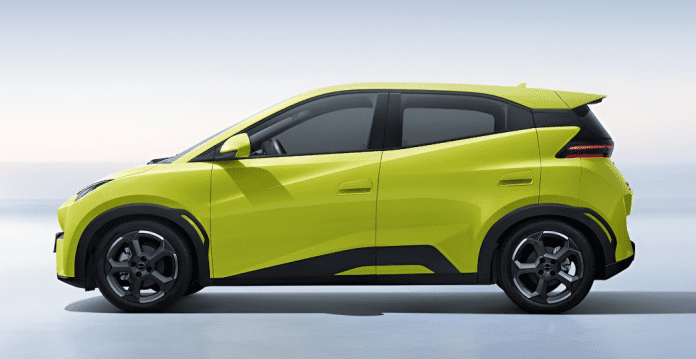Chinese automaker BYD has launched a new version of its Seagull electric vehicle that costs less than $10,000, presenting a challenge to automakers that have yet to address a developing affordability crisis in the global car market.
The Seagull EV Honor Edition, also known as the Dolphin Mini outside of China, starts at approximately $9,800, making it the cheapest model in its domestic market. It also features a 10.1-inch infotainment screen and comes with two battery selections: a 30.08 kWh option with a 190-mile driving range and a 38.88 option with a 252-mile driving range. BYD does not currently and likely never will sell the Seagull in the U.S. but recently introduced the model to South American markets, where it is presently sold for $20,000.
China’s electric vehicle segment presents an important opportunity for brands such as Tesla due to its massive size and rapid growth. However, BYD, a seller of both hybrid and electric vehicle models, has quickly emerged as a major contender to foreign brands in its home market, thanks in part to lower prices. Furthermore, while other companies have struggled to break even on electrified sales, it has had little trouble achieving financial success and is projecting net profits between $4.04 billion and $4.32 billion for 2024. While U.S. automakers are unlikely to ever compete with Chinese businesses on their own turf, that has not stopped many OEM executives from expressing concerns about what a potential competition with BYD would look like.
Speaking to CNBC earlier this month, Terry Woychowski, ex-General Motors executive and current president of automotive at Caresoft, said BYD’s Seagull was a “clarion call for the rest of the auto industry.” CNBC noted that Caresoft had recently examined the model to compare it to similar entries from other electric vehicle makers, discovering in the process that it possessed high levels of quality despite its efficient design. “What they did do is done very well,” commented Woychowski. “It’s efficiently done.” Earlier in the year, Caresoft CEO Mathew Vachaparampil expressed the belief that the Seagull was profitable for BYD.
Ford CEO Jim Farley expressed similar attitudes toward the Seagull, calling the model “pretty damn good” during February’s Wolfe Research conference. He went on to add that if legacy OEMs fail to account for BYD and other Chinese automakers, “then 20% to 30% of [their] revenue is at risk.”
Up till now, the electric vehicle market has grown more slowly than expected due to a number of obstacles, including limited driving ranges and inadequate charging infrastructure. The biggest obstacle for many consumers, however, is pricing. Although EV prices have dropped faster than other models, most of that decline is attributable to Tesla, which, unsurprisingly, is BYD’s primary competitor. Other brands have shown more reticence in adjusting prices, not only in the EV segment but in the ICE market as well, prolonging affordability woes for consumers.
But as time goes on and more consumers adopt hybrid or battery-powered alternatives, the threat posed by Chinese automakers to global brands is, as history has shown, only likely to grow, increasing the risk of short-sighted actions. While American companies, such as Ford and General Motors, have dialed back plans that would have rapidly accelerated electric vehicle production, BYD may soon force its overseas competitors to re-assess their strategies, especially if it introduces the Seagull to wider audiences in the coming years.



